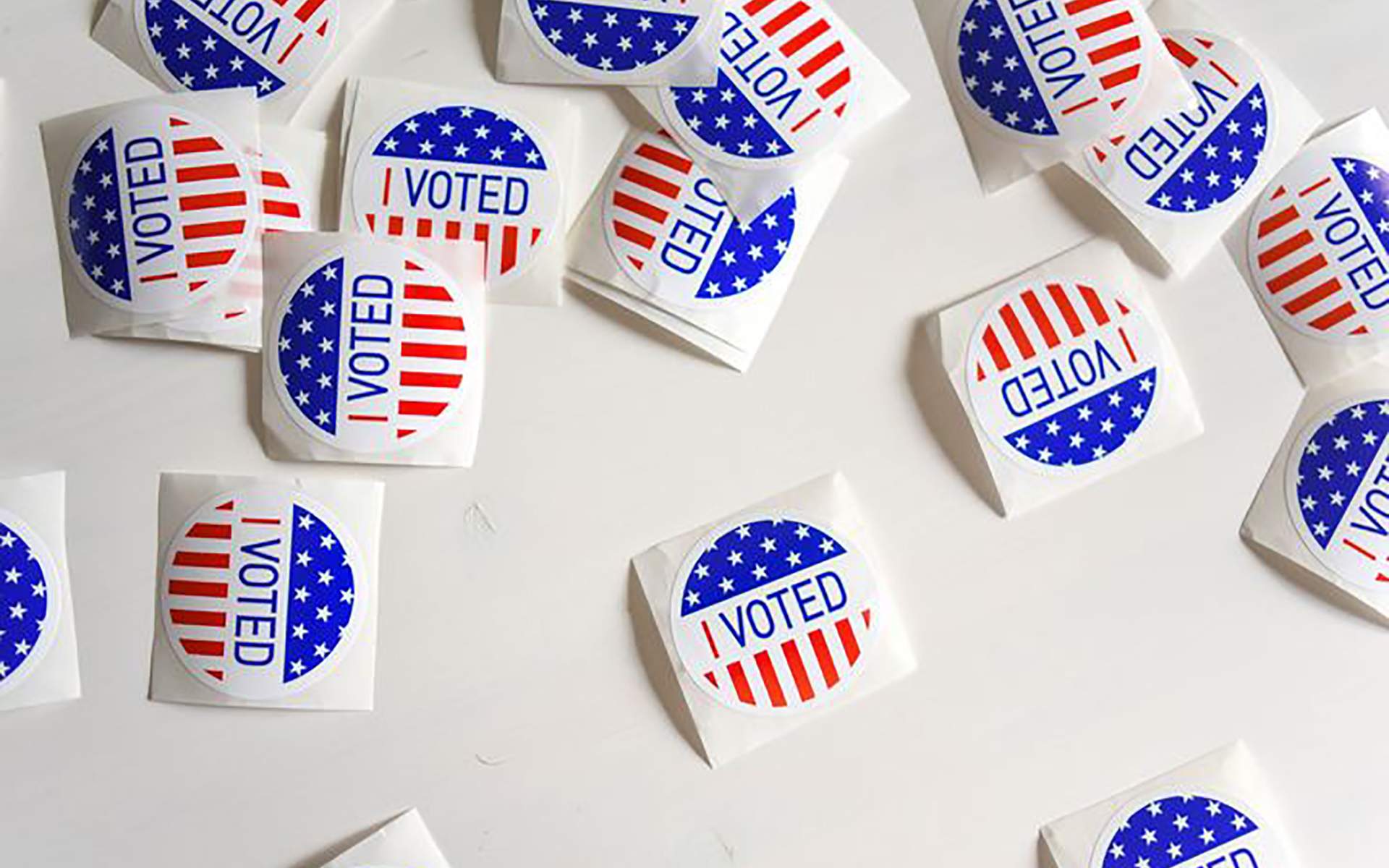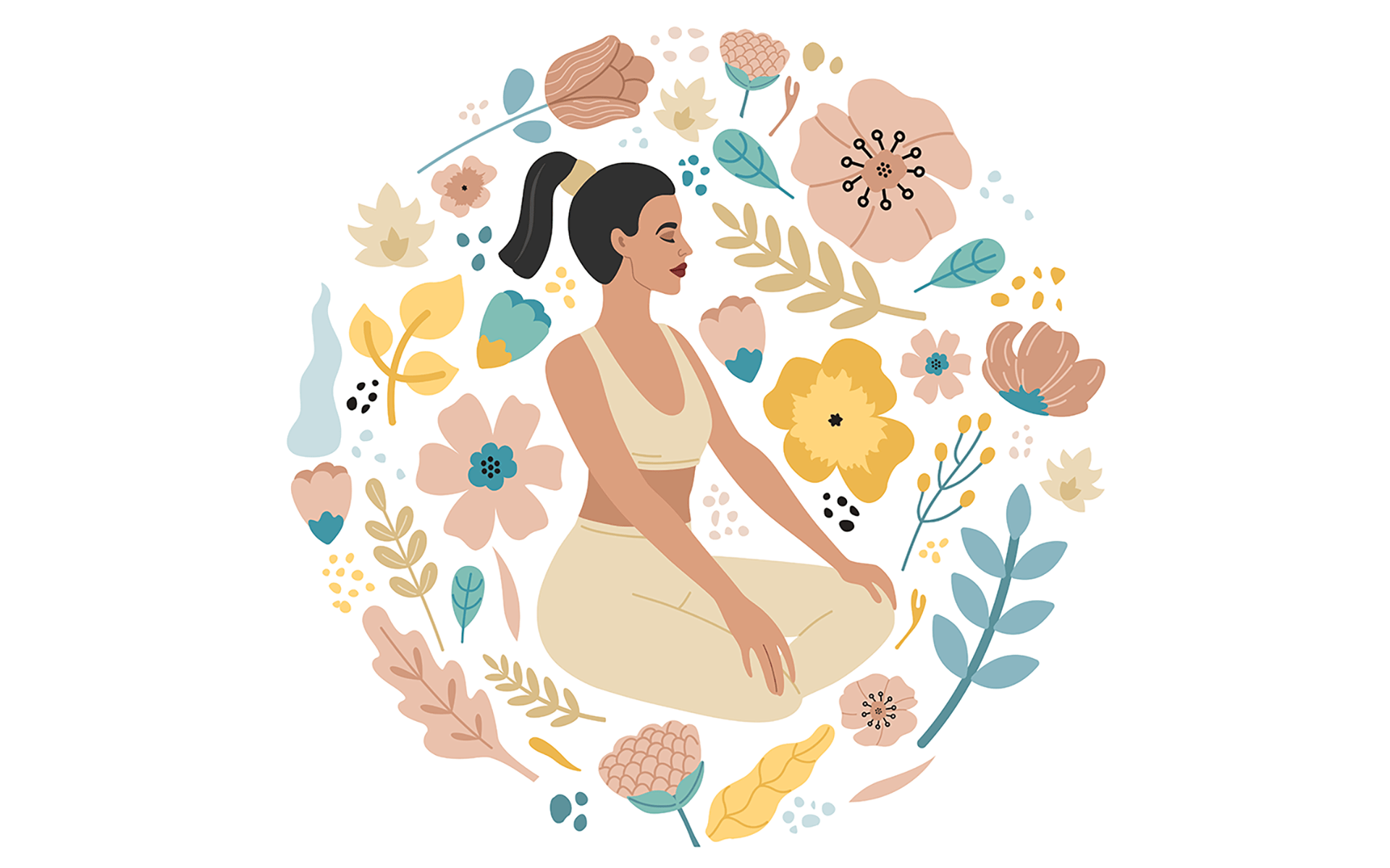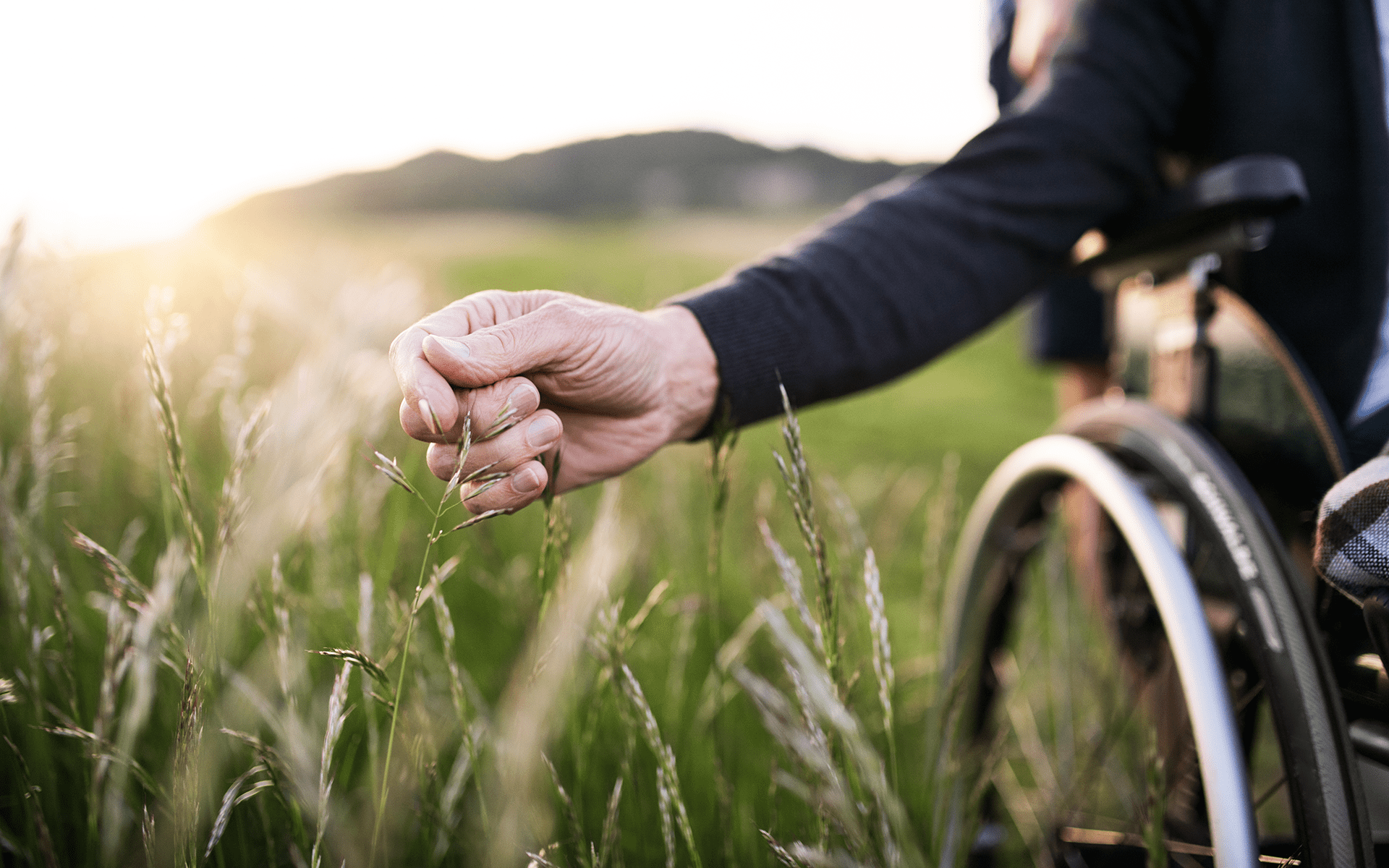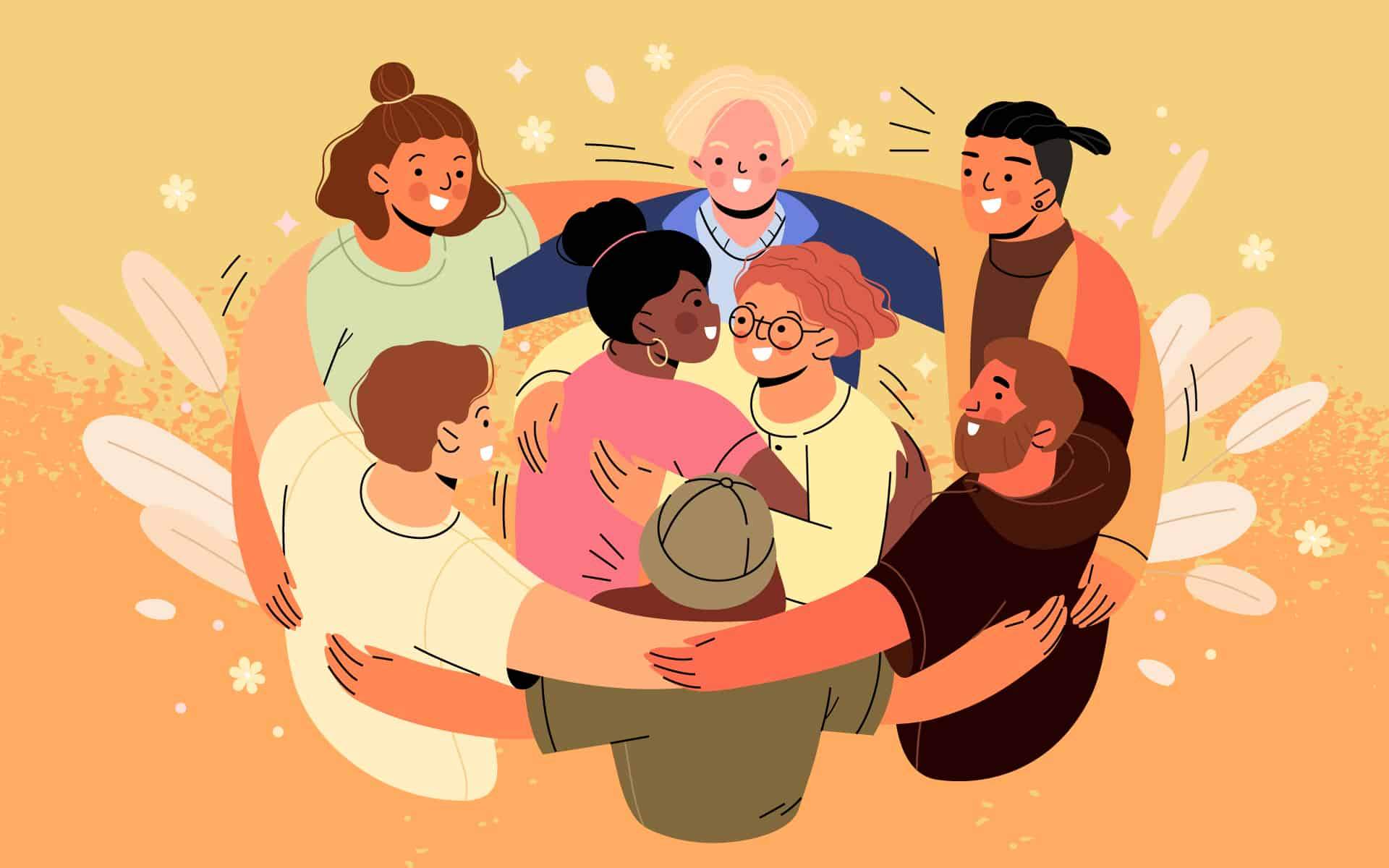How are you doing?
For Americans facing the COVID-19 lockdown and economic instability through the spring and summer, that became a difficult question to ask—and to answer. Things were already pretty bad. And then the presidential election began in earnest.
A new survey from the American Psychological Association finds that this election is a significant source of stress for more than two-thirds of American adults—up from half during the 2016 presidential election. According to a new report based on three surveys by the nonpartisan organization More in Common, “About 7 in 10 Americans are worried about the risk of widespread violence breaking out across the country after election results are announced.”
A lot of us are feeling scared and helpless. And there’s good reason to believe we might look back on the election as a traumatic event.
What can we do to stay resilient in the face of this election? One way is to check in with ourselves daily to make sure we’re doing the things that sustain our health and well-being, while remaining empowered to make a positive impact on the election itself. To come up with reflective questions to ask yourself, we looked back on our articles about surviving stressful times, and we consulted psychologists affiliated with the Greater Good Science Center.
We hope these questions will help you make it through the election…and beyond.
1. What’s happening in my body and mind today?
Sometimes, our feelings sneak up on us, and our body can experience emotions before our conscious mind is aware of them. That’s no surprise: The body is a big place, with a lot going on inside of it. So, you might break your inquiry down into even more specific questions, as suggested by UC Berkeley’s Dacher Keltner and Colorado State’s Michael Steger:
- Is the election disrupting my sleep?
- Is it interfering with my ability to concentrate?
- Do I feel breathless, or feel any pressure in my chest?
You can also look to your mind for information:
- Is the election bringing back bad memories—for example, of abusive men in your life?
- Do thoughts of the election intrude or arise when you wish they wouldn’t?
- Do you find yourself thinking of the election even when you would rather be thinking about other things?
Answering these questions for yourself—or perhaps with another person, like your spouse or a good friend—will help you to understand what you’re feeling, particularly if those feelings were happening below conscious awareness. This allows you to name emotions like anger, grief, or anxiety—and naming them is the first step toward feeling more in control of your life.
2. If I’m feeling distress, what can I do to soothe myself?
When you have named your negative emotions, it’s important to not feel bad about having them. When UC Berkeley researchers studied more than 1,300 adults in a 2017 study, they found “that people who commonly resist acknowledging their darkest emotions, or judge them harshly, can end up feeling more psychologically stressed.”
In other words, please try to avoid feeling bad about feeling bad about the election. Instead of pushing down any negative feelings, ask what you can do to soothe yourself. Therapist Linda Graham suggests these techniques for calming yourself down when everything feels like too much:
- Breathing. Deep belly breathing activates the parasympathetic branch of your autonomic nervous system and slows down your reactivity. Breathing slowly, deeply, can de-escalate a full-blown panic attack in a matter of minutes. Remembering to breathe throughout the day de-stresses you, and helps you install calm as your real baseline, not stress as the new normal.
- Hand on the heart. Neural cells around the heart activate during stress. Your warm hand on your heart calms those neurons down again, often in less than a minute. Hand on the heart works especially well when you breathe positive thoughts, feelings, images of safety and trust, ease, and goodness into your heart at the same time.
- Meditation. Sylvia Boorstein’s book Don’t Just Do Something, Sit There, speaks to our instinctive and socialized tendencies to do, to act (fight-flight). Following her instructions on compassionate mindfulness meditation is a gentle way to calm the mind and body and let things simply be, over time generating a steady inner calm that sustains you over the long haul.
You can also do things like just asking for a hug from someone in your pandemic pod. “We are hardwired to be soothed by touch,” writes Graham. “Warm, safe touch is a stress reducer because it primes the brain to release oxytocin, the hormone of safety and trust, of calm and connect. Oxytocin is the brain’s direct and immediate antidote to the stress hormone cortisol.” If there is no one you can touch right now, call a friend—they might be struggling, too.
3. Am I getting enough good news?
We may think that by staying abreast of the latest news developments we get a clear-eyed picture of the world. But there’s a problem: The news is overwhelmingly negative. That’s because news sources assume there’s more money to be made by featuring alarmist headlines, which keep our eyes on the page (due to our brain’s negativity bias) by hijacking our attention.
Repeatedly consuming negative news stories is detrimental to our health, too. It keeps us in a constant state of alert, which is damaging to our bodies. It can also tear at our social fabric, leading to more distrust and negative feelings about other people and communities. We can also miss a lot of good in the world.
To keep up with what’s happening in the world without being overwhelmed by it, we need to be conscientious about counterbalancing negative news with more positive, hopeful news.
Of course, Greater Good is a good place to start, as we tend to feature the more positive aspects of human nature (and how to decrease the negative). But you can also look to places like the Solutions Journalism Network—an organization that encourages in-depth journalism, highlighting not just problems, but the people and programs finding solutions.
4. When do I feel good about the election?
Here’s another way to counter all the negativity: Michael Steger suggests searching for evidence in the news, or in the world around you, that there are still good people. When do you find yourself tearing up, or smiling? Who is working for goals that you think are important, who seems to be effective and successful? Where are the solutions? Perhaps you heard a speech that inspired you—or maybe you read about a court decision that makes you breathe a sigh of relief. It could be that a candidate’s platform gives you hope, but hope could also come in a gracious moment, when you see a candidate do or say the right thing.
When you find good news, then let yourself feel good about it. You’re searching for “moral elevation”—that’s the warm feeling we get when we witness someone engage in courageous acts.
“Moral elevation not only boosts our positive emotions, but it also promotes our love for our fellow human and inspires us to be better people,” says University of Portland researcher Sarina Saturn. “Indeed, making an effort to experience more moral elevation will restore our faith in humanity and encourage us to help other people.”
Moral elevation is also contagious. In one 2011 study, for example, participants read articles and watched videos depicting acts of common or uncommon kindness—and the results show that hearing about these good deeds made the participants more likely to give away their money.
“Moral elevation has been shown to promote altruism,” Saturn says. “So, make an effort to shine some light on some of the wonderful things the human condition is capable of doing.”
5. What am I grateful for today?
This may seem like the wrong question for the times. With so much negative stuff going on, why focus on what we’re grateful for?
But, as gratitude researcher Robert Emmons writes, “In the face of demoralization, gratitude has the power to energize. In the face of brokenness, gratitude has the power to heal. In the face of despair, gratitude has the power to bring hope.”
Focusing on what we’re thankful for helps us be more resilient when times are tough. If we turn toward appreciating the good in our lives, it lessens our anxiety and depression, so we can stay calmer in the face of uncertainty. And it can keep us from burning out.
Gratitude is also a premier social emotion that binds us to other people, strengthening our relationships. Cultivating it in ourselves inspires us to help others in need, even when giving help is costly to us—something we could use in these difficult times when we need to come together.
So, what can you be grateful for? Besides the everyday things—like family, health, the food on our table, or a beautiful sunset—we can be grateful for living in a democracy where we get a vote. You might be thankful for the many activists who secured suffrage for women and African Americans. In the present, you might find gratitude for the groups now marching in the streets, calling attention to social and environmental wrongs and demanding change.
6. How can I connect with other people?
Yes, this election is stressful—and stress can trigger the fight-or-flight reaction. It’s natural to feel angry or defensive, or to simply want to run away, but there’s more to stress than this simple dichotomy.
Researchers Laura Cousino Klein and Shelley Taylor have identified another kind of response to stressful events: tend-and-befriend, when people can become more trusting, generous, and willing to risk their own well-being to protect others.
Why would stress lead to caring? As Kelly McGonigal writes in Greater Good:
From an evolutionary point of view, we have the tend-and-befriend response in our repertoire first and foremost to make sure we protect our offspring. Think of a mama grizzly protecting her cubs, or a father pulling his son from the wreckage of a burning car. The most important thing they need is the willingness to act even when their own lives are at risk.
To make sure we have the courage to protect our loved ones, the tend-and-befriend response must counter our basic survival instinct to avoid harm. We need fearlessness in those moments, along with confidence that our actions can make a difference. If we think there’s nothing we can do, we might give up. And if we are frozen in fear, our loved ones will perish.
At its core, the tend-and-befriend response is a biological state engineered to reduce fear and increase hope.
In facing this year’s election—and the barriers imposed by COVID-19—don’t let your stress cut you off from others. Allison Briscoe-Smith, a clinician at the Wright Institute, suggests aiming to move “from self-care to community care.” In other words, yes, take care of yourself first, but when you feel strong enough, reach out to those in need—and ask, “What is one small, tangible thing you can do to help someone feel better today?”
7. In light of this election, what are some new ways I can use my special skills or talents to make a difference in the broader world?
When UC Claremont’s Kendall Bronk and her colleagues studied youth during the 2016 election, they found that the election actually inspired purpose. “People saw problems in the broader world and they were inspired to take action,” she says. This might help explain the surge in political activism we’ve seen during the past four years, from the student-led movement for greater gun safety to Black Lives Matter protests.
Jim Emerman of Encore.org, an organization that helps seniors find new purpose in life, suggests asking three questions to help you find your own sense of purpose:
- What are you good at?
- What have you done that gave you a skill that can be used for a cause?
- What do you care about in your community?
Purpose—the drive to make a difference in the world—is intimately related to meaning—a sense that what’s happening to you, and around you, matters in some way. While the ultimate outcome of the election will change its meaning, we won’t stop trying to make sense of what happened. When Michael Steger studied college students’ experiences from the 2016 election and the 2018 midterm elections, he found that their sense of meaning did decline if their candidate lost—but then seemed to rebound within a week. There’s meaning in a loss—and purpose, too, if you can find a way to put your talents to work in making a difference beyond just one election.
8. What future would I like to see—and what steps am I taking today to make that future happen?
GGSC senior fellow Christine Carter suggests thinking now about how you’re going to take care of your own well-being over the long run: What healthy habit are you nurturing now that will be with you after the election? What do you have in your life right now because of this tumultuous time that you hope to still have in your life later?
Those might seem like hard questions to ask yourself, and it might seem even harder, right now, to think of our collective well-being in the future. But, when we look to the future—a process scientists call “prospection”—the present moment actually becomes more meaningful. Though it might be hard right now to think beyond November 3, it’s worth trying. Numerous studies show that envisioning a positive future makes it more likely to come to pass—and prospection can make us more resilient in the present.
But how? In Greater Good’s Purpose Challenge, designed by Bronk and her team, high school seniors were asked to think about the world around them and visualize what they would change if they had a magic wand. Afterward, the researchers asked the students to map out steps they could take toward that ideal.
What would you change, if you had a magic wand? Perhaps you wish people would just be kinder to each other. Or maybe you think wealthy people should have less power in government—and poor people should have more. If economic and social disparities between white people and everyone else enrage you, then a future of racial equality is what you want most. If you’ve spent the past four years remembering the current president’s misogynistic comments about women, you might feel driven to spend the next four years working for gender equality. A positive future depends on many different people working for many different goals for the betterment of humankind.
We don’t have a magic wand—and we don’t know what will happen on November 3. But we do know that there will be a November 4, and we know that we are all going to have to get out of bed and do what we can to make the world a better place, no matter who is in the White House. We might feel powerless, but we’re not. We can vote, we can donate money and march—and we can help the people whose lives we touch. And, maybe, four years from now, when we ask a neighbor or a coworker or a friend how they’re doing, they’ll be able to say, “Great!”
This article originally appeared on Greater Good, the online magazine of UC Berkeley’s Greater Good Science Center, one of Mindful’s partners. View the original article.
read more
The Psychology of Voting
Research suggests that instilling emotions like gratitude and civic pride may help increase voter turnout. Read More
A Mindful Response to the Election Results
The teachings and practices of mindfulness, awareness, kindness, and compassion are made for times like these. Read More
How to Let Go of Being Right
Our toughest talks are full of half-truths—not because we’re serial liars, but because we’re survivalists. Here’s how to bring clarity and intention to your most important relationships. Read More











